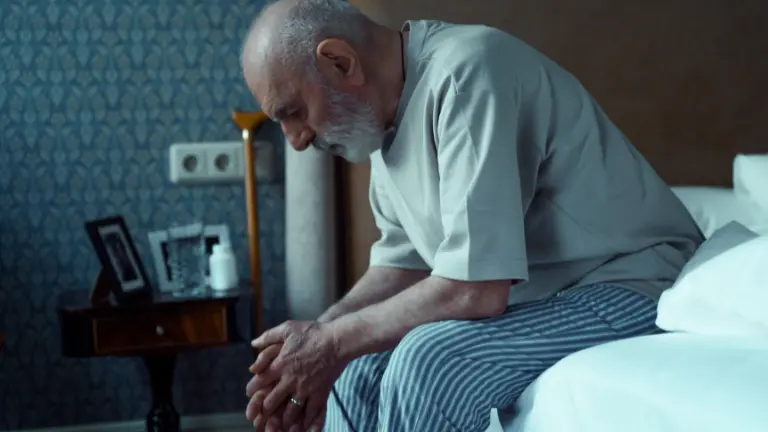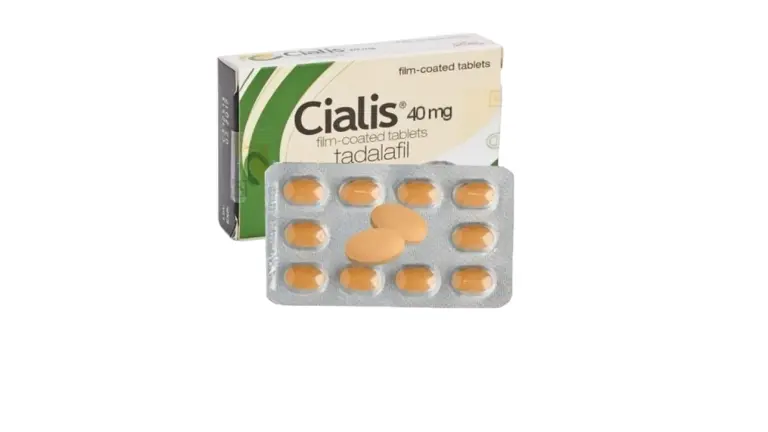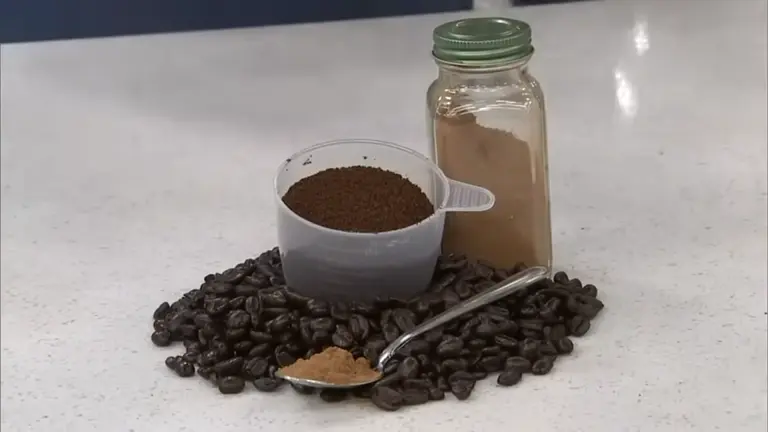Yes, Cialis does expire. The expiration date is typically printed on the packaging.
Cialis, a popular medication used to treat erectile dysfunction (ED) and symptoms of benign prostatic hyperplasia (BPH), has an established shelf life that users should be aware of for both safety and efficacy reasons. Manufactured by Eli Lilly and Company, Cialis contains the active ingredient tadalafil, which requires proper storage to maintain its potency.
Patients are advised to observe the expiration date to ensure they receive the full therapeutic benefits. Understanding the importance of expiration can help avoid potential health risks and ensure the medication works as intended. Proper medication management, including awareness of expiration dates, is crucial for maintaining optimal health outcomes.

Credit: healthaid.lemonaidhealth.com
Cialis And Expiration
Many wonder about the shelf life of medications like Cialis. It’s important to know about Cialis and its expiration, especially if you plan on using it as a treatment. Just like food, medication effectiveness can deteriorate over time. Let’s dive into the specifics of Cialis, what it is, and its common uses, ensuring you’re informed about its longevity and proper usage.
What Is Cialis?
Cialis, known by its generic name tadalafil, is a prescription medication primarily used to treat erectile dysfunction (ED) and symptoms of benign prostatic hyperplasia (BPH). As a member of the phosphodiesterase type 5 (PDE5) inhibitor family, it works by increasing blood flow to the penis, aiding in the achievement and maintenance of an erection.
Here’s what you need to know about Cialis:
- Active Ingredient: Tadalafil
- Available Dosages: Comes in 2.5 mg, 5 mg, 10 mg, and 20 mg tablets
- Onset of Action: Can work as quickly as 30 minutes
- Duration: Effects can last up to 36 hours
In terms of expiration, Cialis has a shelf life. The expiration date is typically 2 years from the date of manufacturing. However, the actual shelf life could be longer, depending on storage conditions. Post-expiration, Cialis may lose potency, making it less effective. It’s vital to adhere to the expiration date for safety and efficacy.
Common Uses
Cialis serves various purposes, primarily in the realm of sexual health and urinary conditions. The common uses of Cialis include:
- Erectile Dysfunction: Helps achieve and sustain an erection
- Benign Prostatic Hyperplasia: Eases symptoms of an enlarged prostate, which may include difficulty in starting the flow of urine, weak stream, and the need to urinate frequently or urgently
- Pulmonary Arterial Hypertension: Though not as common, it can improve exercise capacity in both men and women with this condition
It is important to use Cialis as directed by a healthcare provider. Taking Cialis without a prescription or not adhering to the prescribed dosage can lead to adverse effects. Patients should always check the expiration date before use and store the medication in a cool, dry place to ensure its effectiveness remains intact. Never use expired Cialis, as it may not provide the desired effects and could potentially be harmful.

Credit: healthaid.lemonaidhealth.com
Expiration Dates Explained
Many wonder about the shelf life of medications like Cialis. Do they expire, and why does it matter? Expiration dates on medicines are not just random numbers. They are crucial indicators of a drug’s effectiveness and safety over time. Let’s dive into why these dates are present and what they mean for consumers.
Understanding Expiration Dates
When we talk about expiration dates, we’re referring to the time until a medication may no longer be effective or safe to use. Drug manufacturers determine this date through rigorous testing.
Here’s what you should know:
- Stability Testing: This assesses how long a drug maintains its strength and purity under different conditions.
- Shelf Life: The period a drug is expected to remain effective.
- Expiration Date: The final day the manufacturer guarantees full potency and safety.
For instance, Cialis, used for treating erectile dysfunction, comes with an expiration date too. This date ensures that the active ingredient, Tadalafil, is potent enough to work as expected. Beyond this date, there’s no guarantee. The table below shows a simplified look at what could happen to medicines past their expiration dates:
| Time Past Expiration | Potency | Safety |
|---|---|---|
| 1 Month | May remain high | Generally considered safe |
| 1 Year | Could diminish | Potential risk increases |
| Several Years | Highly uncertain | Not recommended |
Importance Of Expiration Dates
The expiration date on your Cialis pack is more than a suggestion. It’s a critical safety guideline. Here’s why paying attention to these dates is vital:
- Effectiveness: Past the expiration date, Cialis might not work as intended, leading to disappointing results.
- Safety: Chemical changes can occur, potentially causing harm.
- Medical Outcome: Using ineffective medication can worsen health conditions.
It’s essential to treat these dates with respect. A study on expired medications revealed that active ingredients might degrade, posing a health risk. For example, degraded tadalafil might not treat erectile dysfunction effectively, causing stress and health risks. See below how the importance of expiration dates breaks down:
| Aspect | Reason |
|---|---|
| Effectiveness | To ensure the medicine works as expected |
| Safety | To prevent taking potentially harmful substances |
| Health Outcomes | To avoid negative effects on health conditions |
Always check the expiration date on your medications, including Cialis, before use. It’s a small step that ensures maximum effectiveness and safety for your health.
Shelf Life Of Cialis
Many wonder about the longevity of medications like Cialis. Does Cialis expire? Yes, like all medications, Cialis has a shelf life. Understanding this helps ensure both safety and effectiveness. The shelf life is the period during which the drug maintains its potency and efficacy. Let’s delve into the typical shelf life of Cialis and the factors that can influence it.
Typical Shelf Life
When considering Cialis, it’s crucial to note its expiration date. Typically, Cialis tablets have a shelf life of:
- 24 months from the production date.
- It remains effective if stored properly.
After this period, the medication may not work as intended. The expiration date is provided by the manufacturer and is based on stability testing. It’s not recommended to use Cialis past its expiration date. Here’s a simple breakdown of key details to remember:
| Aspect | Detail |
|---|---|
| Expiration Date | Found on the packaging |
| Storage | Keep in a cool, dry place |
| After Expiry | Not advised to use |
Factors Affecting Shelf Life
The shelf life of Cialis can be affected by various factors. Key considerations include:
- Storage conditions: High temperatures and moisture can degrade Cialis faster.
- Exposure to light: This can also reduce its effectiveness over time.
- Package integrity: Damaged packaging may expose the tablets to harmful elements.
For optimal preservation, follow these guidelines:
- Store at room temperature (59°F to 86°F).
- Avoid direct sunlight and heat sources.
- Keep the medication in its original container.
Improper storage can lead to a reduced shelf life. Always check the medication before use. Look for changes in appearance, smell, or texture. Discard if you notice anything unusual. Trust the guidelines provided and ensure you get the most out of your medication.
Effects Of Expired Cialis
Many people wonder if Cialis expires. Yes, it does. Like most medications, Cialis has a shelf life. Taking it past its expiration date can affect how well it works and its safety. Let’s explore the effects of expired Cialis.
Potency Reduction
Over time, Cialis loses its potency. This means it might not work as well to treat conditions like erectile dysfunction. Here’s what happens:
- The active ingredients break down.
- Its effectiveness in helping achieve and maintain an erection decreases.
This table shows the expected potency reduction over time:
| Years Past Expiration | Estimated Potency Loss |
|---|---|
| 1 Year | 5-10% |
| 2 Years | 10-20% |
| 3+ Years | 20%+ |
Even a small drop in potency can make a big difference. It’s best to use Cialis before it expires.
Safety Concerns
Taking expired Cialis can also raise safety concerns. Here are some risks:
- Unexpected side effects might happen.
- The chance of getting sick increases.
Expired medications can cause problems because:
- Their chemical makeup changes.
- They might not be safe anymore.
Always check the expiration date before taking Cialis. Using it after it has expired can be risky. For safety, get a new prescription if your Cialis has expired.
Storage Tips
Like all medicines, Cialis does expire. Keeping it fresh and effective is vital. The key? Proper storage. This section dives into how to store Cialis to ensure its potency and safety. Follow these storage tips to get the most out of your medication.
Ideal Storage Conditions
For Cialis to work best, storing it correctly is crucial. Here’s what you need to know:
- Keep it cool: Room temperature between 15°C to 30°C (59°F to 86°F) is best.
- Avoid moisture: Bathrooms can be damp. Store Cialis in a dry place.
- Steer clear of light: Direct sunlight can harm the medication. Use a cupboard or drawer.
- Original packaging: This protects the pills from air and light.
Following these tips helps maintain Cialis’s effectiveness. Let’s break down the ideal conditions in a table:
| Condition | Requirement |
|---|---|
| Temperature | 15°C to 30°C (59°F to 86°F) |
| Moisture | Low (avoid bathrooms) |
| Light | Avoid direct sunlight |
| Packaging | Keep in original packaging |
Avoiding Spoilage
Preventing Cialis from spoiling is easier than you think. Here’s a simple guide:
- Check the expiry date: Use before this date for best results.
- Inspect the pills: Look for color changes or damage. If unsure, throw them out.
- Avoid sharing: Keep your medication to yourself to prevent misuse.
- Proper disposal: Expired or unwanted Cialis should be disposed of safely. Ask a pharmacist how.
Remember, good storage prevents spoilage. By following these steps, you ensure your Cialis stays effective for as long as possible. Always prioritize safety and efficacy by storing your medication correctly.

Credit: www.hims.com
Using Cialis After Expiration
Many people wonder about the shelf life of medications like Cialis. It’s crucial to know that all medicines, including Cialis, come with an expiration date. This date is a guide for consumers to understand the time frame within which the drug is expected to remain effective and safe.
Using Cialis after its expiration date raises concerns about its potency and safety. Let’s explore the risks associated with taking expired Cialis and the alternatives available for those seeking effective treatments for erectile dysfunction.
Risks Involved
Taking Cialis after its expiration date may not always be safe. Here are some risks to consider:
- Decreased efficacy: The active ingredient in Cialis may degrade over time, leading to reduced effectiveness.
- Potential harm: Chemical changes in expired drugs can result in harmful compounds.
- Unreliable results: You might not achieve the desired outcome, potentially impacting your confidence and mental health.
It’s also important to note the following:
| Aspect | Details |
|---|---|
| Storage conditions: | Improper storage can accelerate the degradation of Cialis. |
| Regulatory advice: | Health agencies advise against using any expired medication. |
Always consult a healthcare professional before deciding to take any medication past its expiration date. They can guide you on the safest course of action.
Alternatives Available
If you have expired Cialis, consider these safe and effective alternatives:
- New prescription: Obtain a fresh batch of Cialis or another approved medication.
- Generic options: Tadalafil is the generic form of Cialis and may be more affordable.
- Lifestyle changes: Improving diet, exercise, and sleep can enhance erectile function.
Other alternatives include:
- Vacuum erection devices that help achieve an erection mechanically.
- Psychotherapy for addressing psychological factors related to erectile dysfunction.
- Herbal supplements, though these should be used with caution and after consulting a healthcare provider.
Make sure to discuss all available options with a healthcare provider to find the best treatment for your needs. They can provide guidance tailored to your health condition and preferences.
Regulations And Guidelines
Medications like Cialis are essential for treating certain health conditions, and it’s crucial to know their shelf life. Understanding expiration dates and regulations ensures safety and effectiveness. This section delves into the rules and guidelines surrounding the expiration of Cialis, a widely used medication.
Fda Regulations
The Food and Drug Administration (FDA) sets strict standards for drug safety. Every medication, including Cialis, must have an expiration date. This date tells you how long the drug is expected to remain effective. Here’s what you need to know about FDA regulations on drug expiration:
- Approval Process: Before hitting the shelves, Cialis undergoes rigorous testing. The FDA reviews these tests to ensure the drug’s stability up to the expiration date.
- Expiration Standards: Manufacturers must prove that Cialis remains stable and effective until its expiration date. This is typically a period of 12 to 24 months after production but can vary.
- Labeling Requirements: The packaging must clearly display the expiration date. This date is based on scientific evidence from stability testing.
The FDA also mandates that pharmacies and healthcare providers adhere to these expiration dates to ensure patient safety. Using expired Cialis can lead to reduced efficacy and possible health risks.
| Aspect | Details |
|---|---|
| Testing | Comprehensive testing to determine shelf life |
| Approval | Review and approval of expiration dates by the FDA |
| Labeling | Clear expiration dates on packaging |
Pharmacy Practices
Pharmacies play a critical role in ensuring medications like Cialis are dispensed safely. They follow strict guidelines to guarantee the drugs provided to patients are within their expiration dates. Here are some practices pharmacies follow:
- Stock Rotation: Pharmacies keep their stock in order, selling older medications first. This method prevents dispensing expired drugs.
- Storage Conditions: Proper storage is vital. Cialis must be kept in conditions that do not accelerate its degradation, such as away from excessive heat or moisture.
- Expiration Checks: Pharmacists regularly check expiration dates and remove expired medications from their inventory to maintain safety.
Moreover, pharmacists inform patients about the importance of checking expiration dates. They guide patients on how to store Cialis correctly at home. This ensures the medication remains effective until the patient needs to take it.
| Practice | Importance |
|---|---|
| Stock Management | Ensures the dispensing of in-date medication |
| Proper Storage | Maintains drug effectiveness and safety |
| Regular Checks | Prevents the use of expired drugs |
Consulting Healthcare Providers
Understanding the expiration of medications like Cialis is crucial for safety and effectiveness. Consulting healthcare providers is the best step to take for any concerns about medication usage and expiry. They offer personalized, accurate information tailored to individual health needs. This ensures you use Cialis safely and effectively.
When To Ask
It’s essential to know the right time to consult healthcare providers regarding medication expiry. Here are some key points:
- If the expiration date on the bottle has passed.
- When you notice a change in the medication’s appearance or effectiveness.
- Before taking a medication you have not used for a long time.
These situations call for a professional opinion. A healthcare provider can clarify doubts and offer guidance. They might suggest disposing of expired Cialis or reassure you about its safety within a certain timeframe.
| Scenario | Action |
|---|---|
| Expired Date | Contact provider for advice. |
| Change in tablet | Seek professional evaluation. |
| Old prescription | Consult before reuse. |
Getting Professional Advice
Seeking professional advice about medication expiry is vital. Consider these points:
- Healthcare providers have up-to-date knowledge.
- They assess your specific health profile.
- Professionals guide proper medication disposal.
A healthcare provider can discuss alternative options if Cialis is not safe to use. They may prescribe a new medication or advise on proper disposal methods. It is essential to follow their instructions to avoid potential health risks or environmental harm.
Remember, using expired Cialis can lead to reduced efficacy or potential harm. Always seek professional advice before making decisions about medication expiry.
Frequently Asked Questions
What Is Cialis’s Shelf Life?
Cialis typically has a shelf life of 2 years from the date of manufacture. Always check the expiration date on the packaging before use.
Can Expired Cialis Be Harmful?
Using expired Cialis can be ineffective and potentially unsafe. It’s crucial to adhere to the expiration date to ensure both safety and effectiveness.
How Should Cialis Be Stored Properly?
Store Cialis in a cool, dry place away from direct sunlight to maintain its potency up to the expiration date provided by the manufacturer.
Conclusion
Understanding the shelf life of Cialis is vital for its efficacy and safety. As with most medications, it does expire, typically after two years. Always check the expiration date and consult with a healthcare professional for guidance. Proper storage is key to maintaining its potency.
Remember, health comes first, so never take chances with expired medications.

:max_bytes(150000):strip_icc()/VWH-GettyImages-1237965447-2167cd66d370428aacd3c044c5758037.jpg)



